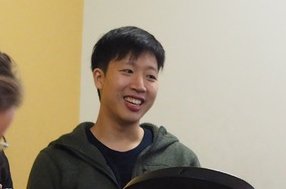Industrial Engineering
The Industrial Engineering track emphasizes a broad portfolio of skills for students interested in careers in industrial engineering and related fields. The M.S. Industrial Engineering track enrolls students with backgrounds in engineering, applied or pure mathematics, computer science, statistics, or basic sciences. Core courses cover production and inventory control, stochastic and deterministic methods in operations research, and human factors.
Industrial Engineering Curriculum
The M.S. Industrial Engineering track allows students to design a program with their own interests and career objectives in mind. Students are offered three plans toward completing their degree: Plan A requires 20 course credits and a thesis together with 10 thesis credits; Plan B requires 30 course credits and a final project; and Plan C requires 32 course credits and no thesis or final project. The Plan C option can be completed in three semesters, while the Plan A and Plan B options typically take somewhat longer.
Students following Plan A are required to take three out of the five core courses listed below. Students in Plan B or C must take four out of the five. All M.S. IE Track students must take 1 seminar credit (typically IE 5773 or IE 8773).
Among the core courses, IE 5531—Engineering Optimization I and IE 5532—Stochastic Models are required for all students in Plans A, B and C. Subject to department approval, students may replace core courses with more advanced courses if they have already taken the equivalent of the core course elsewhere.
Core Course Requirements
+
IE 5531—Engineering Optimization I
Linear programming, simplex method, duality theory, sensitivity analysis, interior point methods, integer programming, branch/bound/dynamic programming. Emphasizes applications in production/logistics, including resource allocation, transportation, facility location, networks/flows, scheduling, production planning.
prereq: Upper div or grad student or CNR
+
IE 5532—Stochastic Models
Introduction to stochastic modeling and stochastic processes. Probability review, random variables, discrete- and continuous-time Markov chains, queueing systems, simulation. Applications to industrial and systems engineering including production and inventory control.
prereq: Undergraduate probability and statistics. Familiarity with computer programming in a high level language.
+
IE 5511—Human Factors and Work Analysis
Human factors engineering (ergonomics), methods engineering, and work measurement. Human-machine interface: displays, controls, instrument layout, and supervisory control. Anthropometry, work physiology and biomechanics. Work environmental factors: noise, illumination, toxicology. Methods engineering, including operations analysis, motion study, and time standards.
prereq: Upper div CSE or grad student
+
IE 5545—Decision Analysis
Single-person and group decision problems. Structuring of decision problems arising in personal, business, and public policy contexts. Decision-making under uncertainty, value of information, games of complete information and Nash equilibrium, Bayesian games, group decision-making and distributed consensus, basics of mechanism design.
prereq: 3521 or equiv
+
IE 5551—Production and Inventory Systems
Inventory control, supply chain management, demand forecasting, capacity planning, aggregate production and material requirement planning, operations scheduling, and shop floor control. Quantitative models used to support decisions. Implications of emerging information technologies and of electronic commerce for supply chain management and factory operation.
prereq: CNR or upper div or grad student
Sample Program
The following program is an example and assumes that the student opts for the Plan C (coursework only) option. Students select electives from a wide array of courses in business, engineering, mathematics, computer science, public health, and other areas.
Semester 1
- IE 5531—Engineering Optimization I (Core)
- IE 5532—Stochastic Models (Core)
- IE 5773—Practice-Focused Seminar
- IE 5524—Process Transformation through Lean Tools (Suggested Elective)
Semester 2
- IE 5545—Decision Analysis (Core)
- IE 5551—Production and Inventory Systems (Core)
- Elective from Business, Engineering, or Other Area
Semester 3
- IE 5541—Project Management (Suggested Elective)
- Elective from Business, Engineering, or Other Area
- Elective from Business, Engineering, or Other Area



Drive Improvement. Make an Impact.
Industrial Engineering M.S. graduates go on to rewarding careers where they play crucial roles designing, managing, and improving the efficiency of operational systems such as supply chains, production and manufacturing processes, health-care delivery systems, and logistics and distribution systems.
Potential Career Paths
- Industrial Engineer
- Project Manager
- Supply Chain Manager
- Inventory Analyst
- Process Engineer
- Consultant

Take Advantage of the Twin Cities

The Department of Industrial and Systems Engineering is located on the University of Minnesota—Twin Cities campus in the heart of Minneapolis, on the banks of the scenic Mississippi River. A new, modern light rail system connects the campus with downtown Minneapolis, downtown St. Paul, and the MSP International Airport. With year-round outdoor activities, a metro population of over 3 million, and a diversified economy, the Twin Cities of Minneapolis and St. Paul offer a truly exceptional standard of living. The state of Minnesota is home to 17 Fortune 500 companies.
Who has Hired Industrial Engineering Graduates?
3M
Amazon
Andersen Windows
C.H. Robinson
Cummins
DHL Supply Chain
Groupon
Nordic Ware
Pearson VUE
Saint-Gobain
St. Jude Medical
Syngenta
Target
The Walt Disney Company
Wells Fargo
Zero Motorcycles
...and many others
Ready to apply?
Review our admission requirements and start your application today!
Questions?
For more information, please contact Graduate Program Coordinator Amy Bolis at isyegradinfo@umn.edu or (612) 625-4909.